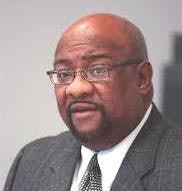 Dr. Robert R. Jennings was the target of criticism after his remarks to female students about not putting themselves “in a situation” where they might have to report rape.
Dr. Robert R. Jennings was the target of criticism after his remarks to female students about not putting themselves “in a situation” where they might have to report rape.Despite a public apology and a pledge that he would be more sensitive, Dr. Robert R. Jennings was unable to hold onto his presidency. After his comments on sexual assault to a group of female students at Lincoln University went viral and drew national outrage last month, Jennings was forced to resign Monday.
It was the final chapter for the 63-year-old college president who had faced a turbulent college presidency almost from the time he landed in January 2012 at the small, historically Back college located about an hour outside of Philadelphia.
Shortly after his arrival, the alumni and the faculty gave him votes of “no-confidence” but it was not until a YouTube video surfaced of Jennings counseling a group of female students not to “put yourself in a situation” where they might have to report rape, that it was clear that he would not escape the brewing controversy.
In the face of mounting criticism focused on his remarks, Jennings later apologized. The university board announced it would conduct an internal view of his presidency, but by then it was too late.
Kimberly A. Lloyd, chair of the university’s Board of Trustees, announced Jennings’ resignation in a letter to students, faculty and staff, and said that Valerie Harrison, who had been general counsel at the university, would immediately serve as acting president “while the Board carefully considers its options for a long-term interim president and begins its search for the 14th president of the University.”
In an effort to move beyond the scandal, Harrison announced the creation of a task force on sexual misconduct that will include faculty, students and staff. Harrison said that the task force will be charged with creating programs aimed at educating the campus community about sexual assault.
Dr. Marybeth Gasman, a professor at the Graduate School of Education and the director of the Center for Minority Serving Institutions at the University of Pennsylvania, said that Jennings’ departure was inevitable.
“Dr. Jennings had lost the confidence of the faculty and alumni and as such could not effectively lead the institution in the way that it needs to be led,” said Gasman, who is an expert on HBCUs. “In addition, the president’s comments related to Black women, Black men, and rape were troubling and cast a shadow on the institution — one that Lincoln does not need to endure. I hope Jennings reflects on this situation as we all must when we say things that offend.”
Jamal Watson can be reached at [email protected]. You can follow him on Twitter @jamalericwatson.





















